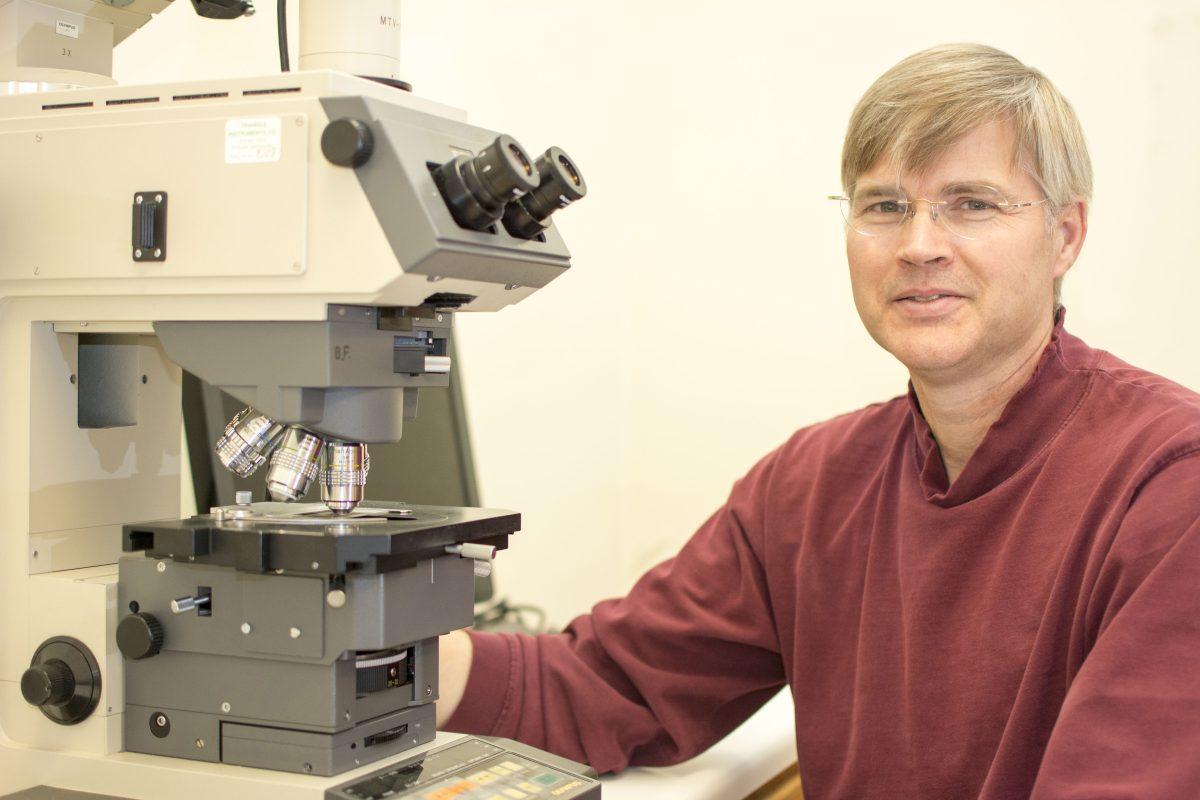Adorning William Flowers’ office is an array of different pig figurines and stuffed animals that his students have given him during the years. Flowers studies and said he is interested in anything related to pigs—even their semen.
Flowers, an alumni distinguished professor of animal science at N.C. State, said his job entails 60 percent teaching and 40 percent research. His research program is reproductive physiology and works mainly with farm animals, specifically male pigs.
“What I’m really interested in is helping animals or owners of animals who may think their males are sub-fertile, infertile or not impregnating female animals,” Flowers said. “That is kind of my job: to conduct research and kind of help them out.”
Flowers said he helps the medical schools in the Triangle by testing on pigs.
“Because I know pigs and understand how they work and think, which is kind of a strange thing, I help the medical schools that use pigs as a model for studying human diseases,” Flowers said. “So a lot of times I collaborate with them and help them try to figure out how to manage pigs.”
According to Flowers, pigs’ behavior can be manipulated by doing something as simple as rearranging the pens in which they live, so he helps the medical schools with their organization.
“A lot of those people are really, really good at what they do, but they’ve never worked much with pigs,” Flowers said. “That’s not in my Ph.D. work, but it is something that I really enjoy.”
On the other side of his work, the teaching side, Flowers tends to work with with masters, Ph.D. students or a few undergraduate students. Flowers said that animal science students typically need to have documented research experience to get into vet school.
“I work with a lot of students on research projects so they can go on and get into vet school,” Flowers said. “So I end up doing a lot of interesting things with pigs because the students may be interested in them.”
Flowers said he grew up around animals, which influenced his career choice.
“I grew up on a diversified farm. It was a family farm and really interesting,” Flowers said. “This was back in the ‘70s, and everything we raised was outside. And out of all the animals I worked with, I always felt the sorriest for the pigs because people never really paid much attention to them, and I felt like they were always kind of picked on.”
Flowers said he didn’t always think he was going to be a professor. Hee said he wanted to be a veterinarian when he was growing up.
“I went to Virginia Tech for undergrad,” Flowers said. “So I really thought I wanted to go to vet school, but then I got to learn more about pigs – like their reproductive physiology and nutrition – and decided to go to grad school. I also had the opportunity to be an undergraduate teaching assistant, and I really liked working with my peers.”
Flowers said his work, as well as most work involving pigs, is relevant to society in a few ways.
“Right now, pork is sort of the most-popular-consumed protein in the world if you look at the per capita protein consumption,” Flowers said. “And the way our society is rapidly growing we are going to have to come up with different ways to produce food to feed everyone in the world.”
Flowers said he doesn’t, in fact, eat pork.








